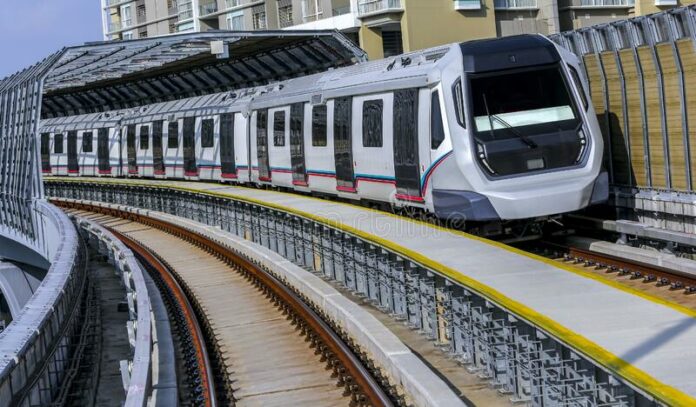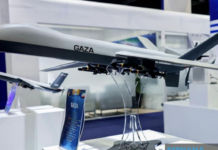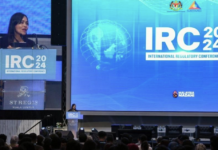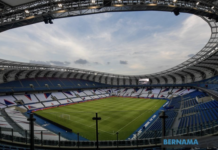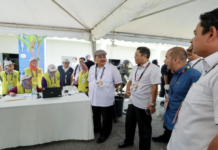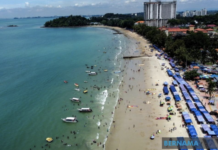KUALA LUMPUR, Dec 6 — As Malaysia embarked into the transition to the endemic phase, year 2022 saw a progressive journey for the transportation sector, especially with Klang Valley Mass Rapid Transit phase three (MRT3) projects being on track and the final trial run of Putrajaya MRT line Phase Two operation.
The ongoing open tender process for MRT3 Circle Line’s with four main contract packages is expected to transform the construction sector and rejuvenate the economy moving forward.
Unlike the MRT2 Putrajaya Line project which has one main turnkey contractor only at Tier 1, the MRT3 project will see five Tier 1 main contractors appointed to lead its implementation, plenty of opportunities for local construction companies to participate regardless of size.
Mega rail projects
Even MIDF Research in its recent projection has maintained its ‘Positive’ stance on the construction sector in view of the manageable cost headwinds and the potential rollout of infrastructure projects in Malaysia, driven by positive developments from the upcoming MRT3 tender awards by the end of this year.
On the development of final trial run of Putrajaya MRT line, the test started from Nov 22 to Dec 18 and operates from Putrajaya Sentral station to Kwasa Damansara station and the test trains will stop at all Putrajaya MRT line Phase One stations without picking up passengers.
Phase Two of the MRT2 project, which now involved the Kampung Batu station to Putrajaya Sentral, is expected to start operating in January next year.
On the East Coast Rail Link (ECRL), the game-changer, the 2.8-km long Kuantan Tunnel has achieved a tunnelling breakthrough two months ahead of schedule on Oct 17, becoming the 12th ECRL tunnel to complete the excavation process.
The successful breakthrough of 12 ECRL tunnels, which is considered among the most complex parts were seen as another major milestone achievement of the mega project.
Three additional ECRL tunnels are currently undergoing excavation and are expected to breakthrough by the end of 2022.
Whereas the Genting Tunnel is the first ECRL tunnel to be excavated using the tunnel boring machine method as opposed to the drilling and blasting method that has been used for other tunnels so far.
The cost of the ECRL project involving 59 tunnels is estimated to reach RM50.27 billion and includes construction work in four states, namely Kelantan, Terengganu, Pahang and Selangor.
Moreover, this year also saw another decision made by the government to allow Dhaya Maju LTAT Sdn Bhd to continue with the Klang Valley Double Tracking Phase 2 (KVDT2) project.
The KVDT2 project would be continued by Dhaya Maju LTAT with the contract cost of RM4.475 billion as well as the implementation terms staying as agreed in the Letter of Acceptance dated Aug 19, 2019.
The Johor government is targeting the progress status of the Johor Bahru-Singapore Rapid Transit System (RTS) Link to reach 70 per cent by December next year.
The RTS line is a four-kilometre cross-border railway project connecting the terminal in Singapore at Woodlands North station to the Malaysian terminal at Bukit Chagar, Johor Bahru and once completed in December 2026, the network will be able to carry 10,000 passengers per hour in each direction.
Connectivity in Sabah and Sarawak progressing well
In August this year, the federal government has also approved the construction of Phase 2 of the Sarawak-Sabah Link Road (SSLR) project and Trans Borneo Highway (LTB) project which will commence early next year.
Technical study of Phase 2 of the SSLR and LTB projects that connect Miri to Limbang and Lawas are expected to take three to five years to complete, was now at the final stage.
Besides that, Sarawak also saw the opening the Pujut Section of the Sarawak portion of the Pan Borneo Highway took place on Aug 7, 2022, involving a total cost of RM10.62 billion that enable communities and residents in Miri, Limbang and Lawas to enjoy a better, safer and more comfortable road network.
The 15.9-km stretch of the Pujut Section of the Pan Borneo Highway that connects the Miri Airport intersection and the Pujut Link Road was built at an estimated cost of RM470 million.
Phase one of the Pan Borneo Highway project has reached 88 per cent completion as of October 2022, which covers 786 kilometres from Telok Melano to Miri, involving a cost of RM16.117 billion.
Meanwhile, the acquisition of all the securities of four highway concession companies – KESAS, SPRINT, LITRAK and SMART, by Amanat Lebuhraya Rakyat Bhd (ALR) has been completed in Oct 14.
ALR, which will be structured as a ‘not-for-profit’ entity, will be acquiring 100 per cent of SPRINT, LITRAK, KESAS) and Syarikat Mengurus Air Banjir & Terowong Sdn Bhd (SMART) for a combined EV of RM5.48 billion (RM2.06 billion debt and RM3.42 billion equity).
LRT breakdowns and chaos
While the transportation sector started recuperating well after a severe impact due to pandemic, LRT disruption last month has created chaos among the commuters, causing bad traffic in the Klang Valley throughout the disruption period.
On Nov 8, Rapid Rail Sdn Bhd announced that the LRT service on the Kelana Jaya route was disrupted and had to be halted due to the automatic train control (ATC) system which caused a loss of signal between the control centre and the train.
The next day, Prasarana Malaysia Bhd announced that part of the LRT service on the Kelana Jaya route would be suspended for seven days until Nov 15, involving 16 stations from Kelana Jaya to Ampang Park stations, affecting 200,000 users, which saw traffic in the capital getting congested especially during peak hours.
However, Prasarana took the prompt measure to compensate LRT users affected by service disruptions by extending the validity period of passes and more free shuttle buses were provided by service providers.
MRDC
Nevertheless, to better serve the rail industry, the Transport Ministry will establish an institution known as the Malaysia Rail Development Corporation (MRDC) in an effort to empower the industry.
The establishment of MRDC was seen timely as the rail industry is expected to grow rapidly after the completion of the Electric Train Service (ETS) 3 track to Johor and the ECRL stations by 2026.




